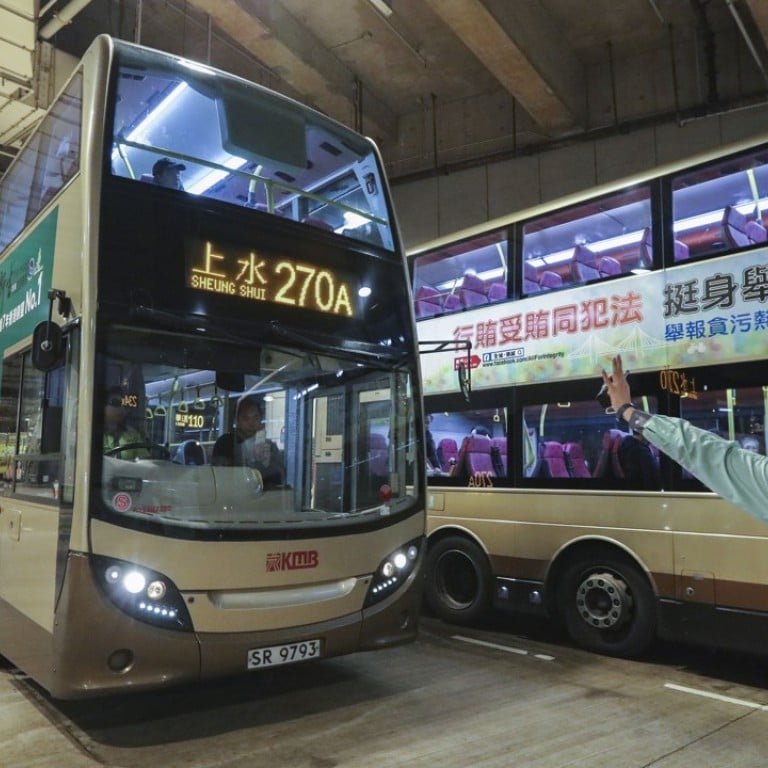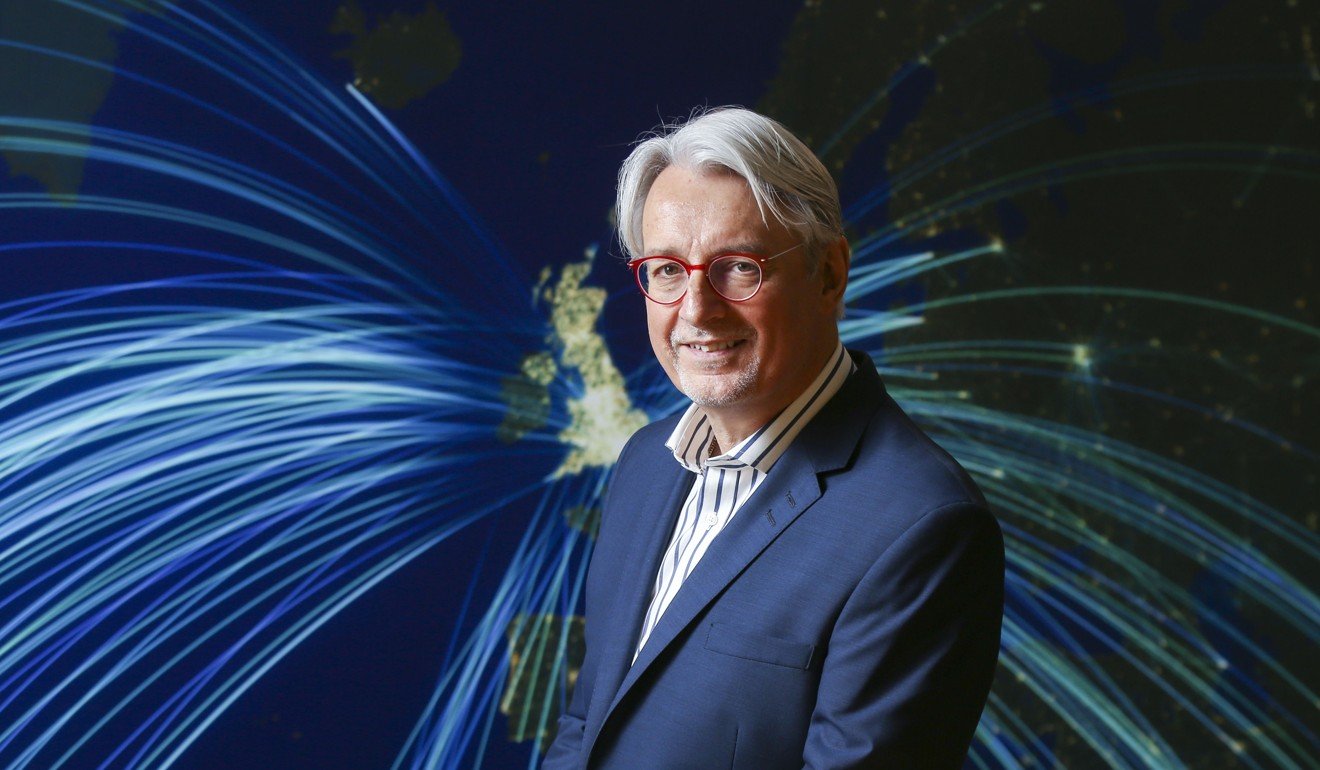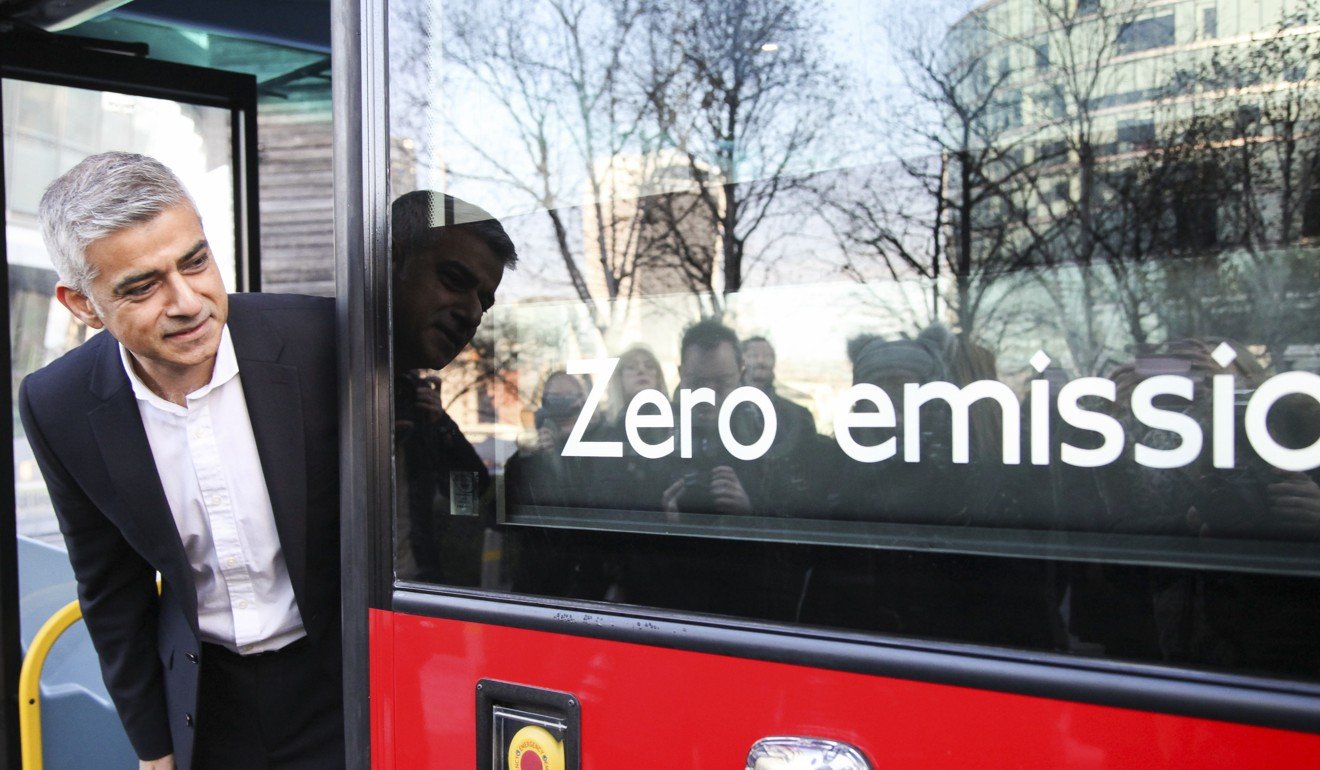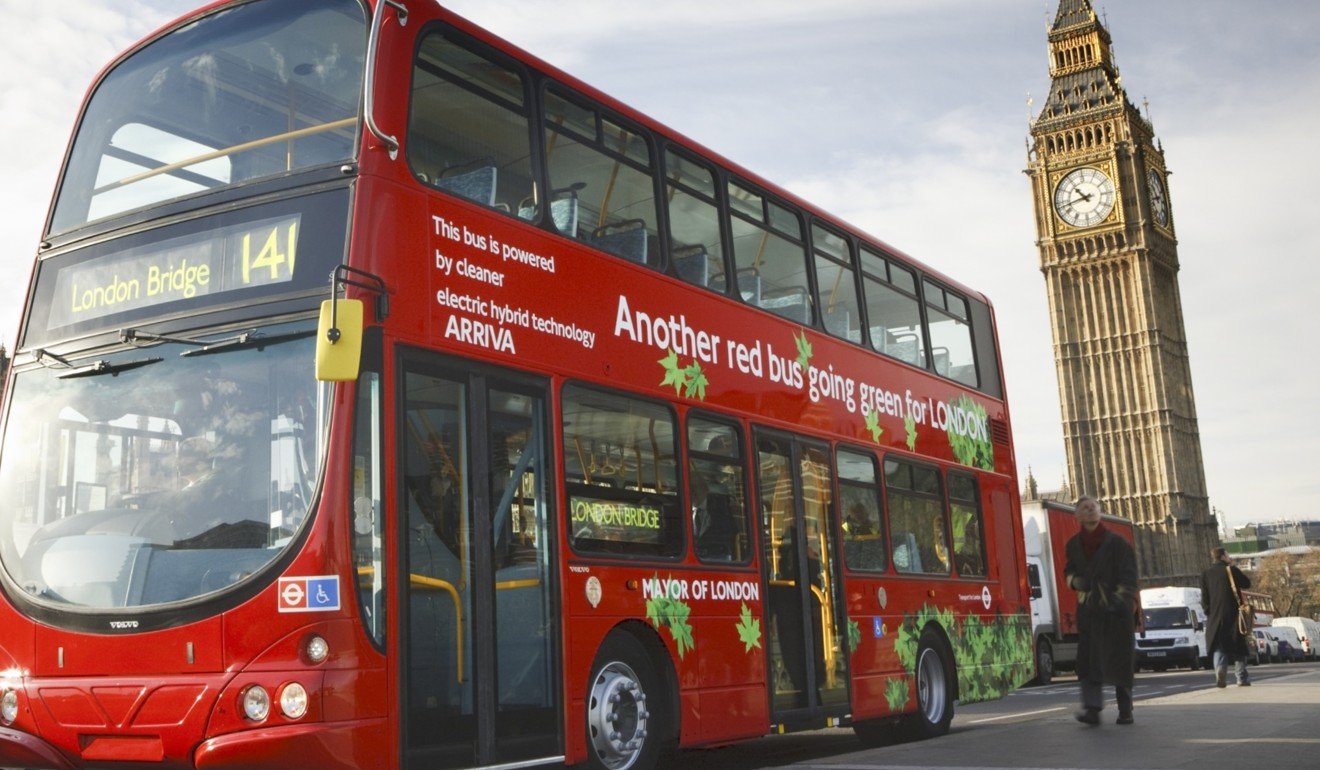
Hong Kong bus operator KMB may go green with zero emissions using hydrogen fuel cell technology
UK-based partner says trials expected for double deckers running on new system that is more efficient than batteries
Hong Kong bus operator KMB – recently locked in a wage row with drivers – may explore hydrogen fuel cell technology to achieve zero emissions for its fleet of double deckers, according to the company’s UK-based partner.
Mark Nodder, chairman and CEO of Wrights Group, a technological pioneer in public transport, revealed the news in an exclusive interview with the Post.
During a visit to the city last month, Nodder met KMB managing director Roger Lee. He said Lee expressed an interest to join a trial for hydrogen fuel cells.
The two new e-vehicles designed to cut pollution on Hong Kong’s roads
The group is also known as Wrightbus, a Northern Ireland bus manufacturer and front-runner in innovative hydrogen and electric battery technology. It aims to produce buses with zero emissions, including electric buses or those powered by hybrid systems or hydrogen.
It is now developing the world’s first hydrogen-powered double decker for London, and has already put into service a fleet of eight hydrogen single-deck buses in the British capital. The move comes amid a pledge by London mayor Sadiq Khan to stop buying pure diesel double deckers from this year, as part of a drive to improve the city’s air quality.

The hydrogen bus is designed as a hybrid vehicle with zero emissions, powered by a hydrogen fuel cell and a battery pack. A hydrogen tank provides the gas to the fuel cell where it combines with oxygen to produce electricity for the vehicle.
Nodder said a trial was conducted with two double decker prototypes last year, and the group expected to put a small number of such vehicles into service by the end of the year.
Hong Kong eyed as test market for ‘cleaner’ LNG fuel-cell vehicles
“The objective here is to try to have a bus with zero emissions, and compare the fuel cells with electric buses. It’s an alternative to a bus [running fully on batteries],” he said.
According to Nodder, some foreign bus companies had already expressed interest in the technology, including KMB. The Hong Kong operator and Wrightbus have a long-standing relationship since 2003, with 500 double deckers sold to the city’s bus giant.

“I think [a hydrogen bus trial run by KMB] is bound to happen,” Nodder said. “I hope within the next 12 to 18 months we can work together on this. In KMB, they are [searching for] the right technology for the future,” Nodder added.
A KMB spokeswoman said the company “keeps abreast of the latest developments in green energy and is open to the exploration of environmentally friendly green energy initiatives, while complying with local licensing requirements of franchised buses”.
It was the city’s worst road accident in nearly 15 years, and union leaders highlighted long-running concerns about an overworked, underpaid and insufficiently trained pool of drivers.
Nodder envisioned a future with more advanced technologies on buses to address safety issues. “We will start to see automated features on buses to assist drivers to prevent accidents and improve safety,” he said.

Nodder said hydrogen buses could serve as an alternative to pure electric buses as there were more advantages to the new technology. For example, he said, a hydrogen bus took only 10 minutes to recharge for the whole day’s run while a battery-powered bus needed to be recharged every few hours, requiring extra buses on standby to ensure an uninterrupted service.
More space was needed on a bus to carry the battery pack, compromising passenger capacity, while the supply of battery power was also not enough to support the air conditioning system for a double decker, Nodder said.
One obstacle to overcome for the development of hydrogen-powered buses, according to him, was high costs. Nodder said in 1999, a small hydrogen bus would cost over 1 million pounds (HK$10.9 million). “Prices are coming down now but it’s still relatively expensive,” he said, adding that growing demand would eventually drive down costs.
Hong Kong’s KMB unveils bus with solar panels to power system that cools air in parked vehicle
The perfect scenario, according to Nodder, was to produce hydrogen as a by-product of renewable energy such as wind or hydroelectric power, splitting the gas from water.
“Then you can make the hydrogen free. It’s very eco-efficient and eco-sensitive,” he said.
However, he warned, in the pursuit of zero emissions for public transport, there were always political implications.
“How is the power generated? Is it through clean renewables? If it’s through burning oil or coal, then well, the buses are clean, but somebody’s town will still get the emissions. That’s what we call a well-to-wheel issue … It’s a big political dimension,” he said.
Nodder is among the speakers at the coming Great Festival of Innovation, an event for policymakers and business leaders hosted by the UK government in Hong Kong between March 21 and 24.

